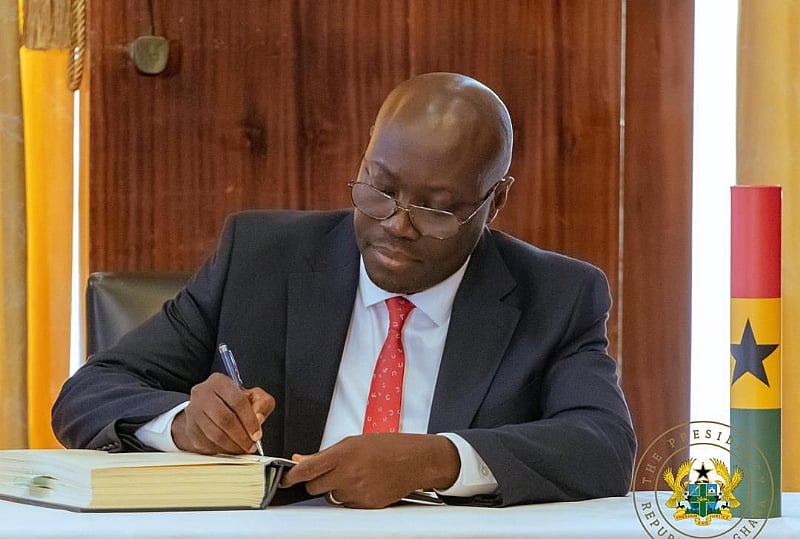Ghana’s Ministry of Finance, under the leadership of Dr. Cassiel Ato Forson, has embarked on a comprehensive audit of government payables and commitments to ensure transparency and fiscal responsibility. This audit, a key component of Ghana’s ongoing engagement with the International Monetary Fund (IMF), aims to validate the legitimacy and value of these financial obligations and recommend corrective measures for any discrepancies discovered. Three auditing entities – the Auditor-General of Ghana and two international audit firms – have been commissioned to conduct this review, with an estimated completion time of eight weeks. The timing of this audit coincides with the successful conclusion of the IMF’s fourth review of Ghana’s economic program under the Extended Credit Facility (ECF) arrangement.
The IMF mission, led by Mr. Stéphane Roudet, engaged with Ghanaian authorities from April 2nd to April 15th, 2025, to assess the country’s progress on policy and reform priorities. The discussions culminated in a staff-level agreement, signaling positive momentum in Ghana’s economic recovery efforts. Dr. Forson affirmed the government’s unwavering commitment to implementing the IMF-supported program, emphasizing its determination to stay on track despite inherent challenges. This commitment is further underscored by a series of legislative and administrative reforms aimed at strengthening public financial management and enhancing fiscal discipline.
A key legislative change involves amending the Procurement Act to mandate the Minister of Finance’s authorization for all central government procurements. This measure introduces a crucial check and balance in the procurement process, enhancing oversight and preventing unauthorized spending. Further strengthening fiscal control, amendments to the Public Financial Management (PFM) Act of 2016 have introduced a debt rule, targeting a debt-to-GDP ratio of 45% by 2035, and an operational rule requiring an annual primary surplus. These measures aim to curb excessive borrowing and ensure sustainable fiscal management. The amended PFM Act also mandates establishing an independent fiscal council to monitor adherence to these rules, providing an additional layer of accountability.
Complementing these legislative changes, the Ministry of Finance has operationalized a Compliance Desk to monitor Ministries, Departments, and Agencies (MDAs) adherence to their fiscal commitments under the PFM Act. This proactive monitoring mechanism is further reinforced by the planned publication of a PFM Commitment Control Compliance League Table. This table will rank MDAs based on their compliance with commitment controls and expenditure monitoring measures, promoting transparency and incentivizing responsible fiscal behavior. These combined efforts demonstrate a commitment to strengthening fiscal governance and promoting responsible public financial management.
Furthermore, the government has been diligently implementing structural reforms across various sectors, including the migration of 549 MDAs and Metropolitan, Municipal, and District Assemblies (MMDAs) spending units’ accounts into the Ghana Integrated Financial Management Information System (GIFMIS). This integration streamlines financial operations and enhances transparency in public spending. In the energy sector, despite persistent fiscal risks, the government has implemented measures to mitigate shortfalls and ensure financial sustainability. These efforts include operationalizing a single account mechanism and implementing the Cash Waterfall Mechanism according to established guidelines, guaranteeing minimum contractual payments to Independent Power Producers (IPPs).
The successful conclusion of the fourth IMF review and the staff-level agreement represent a significant milestone in Ghana’s economic recovery journey. Dr. Forson expressed confidence that the implementation of these comprehensive reforms will pave the way for the IMF Board’s approval of the fourth review, unlocking the disbursement of the fifth tranche of US$370 million. This disbursement, bringing total disbursements under the program to US$2.3 billion, will provide crucial financial support for Ghana’s continued economic recovery and development efforts. The Minister’s personal commitment to overseeing the implementation of all commitments under the IMF-supported program reflects the government’s determination to achieve sustainable economic growth and stability.














